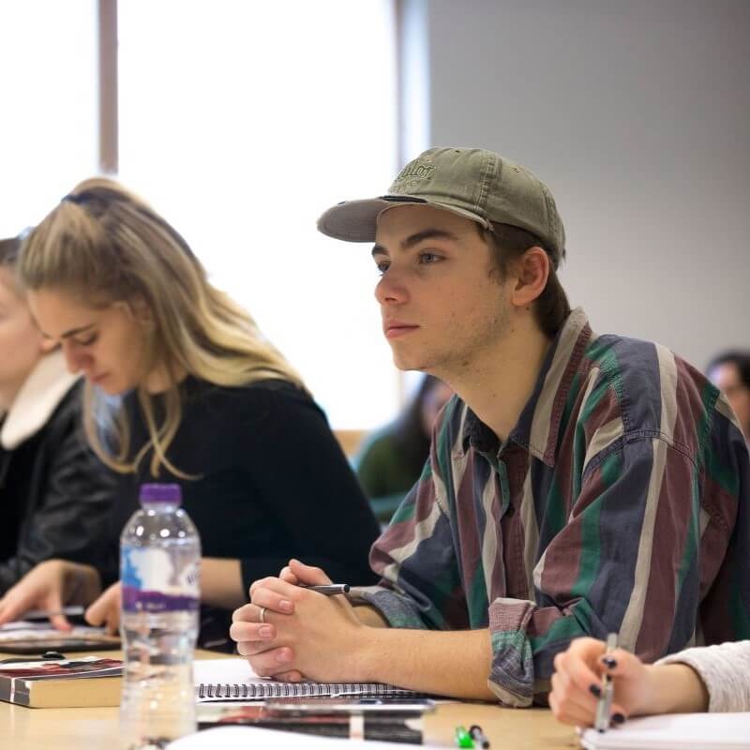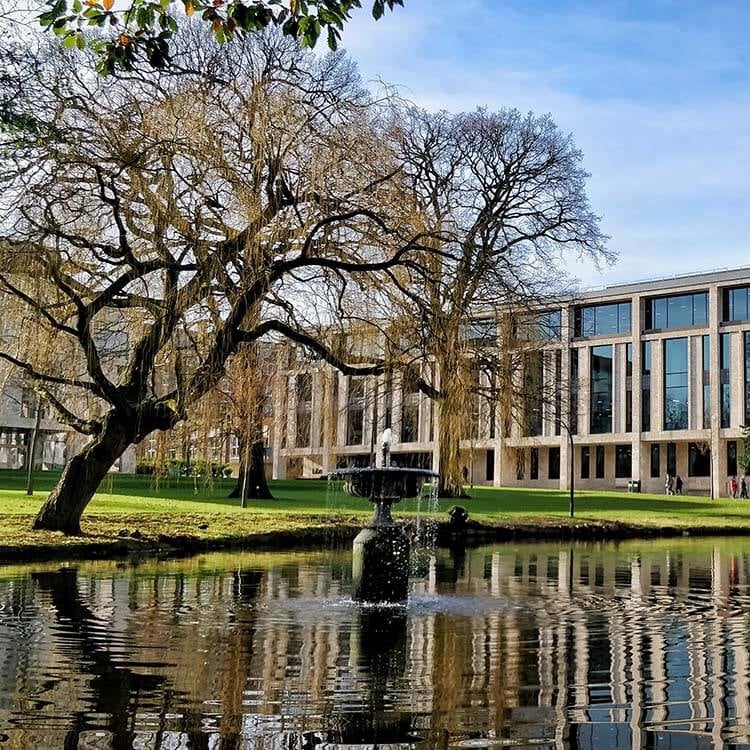/ Undergraduate /
Start date:
September 2025
Entry tariff:
104–120 UCAS points (or equivalent)
Foundation Year: 64–80 UCAS points (or equivalent)
UCAS Code:
Q300
Q302
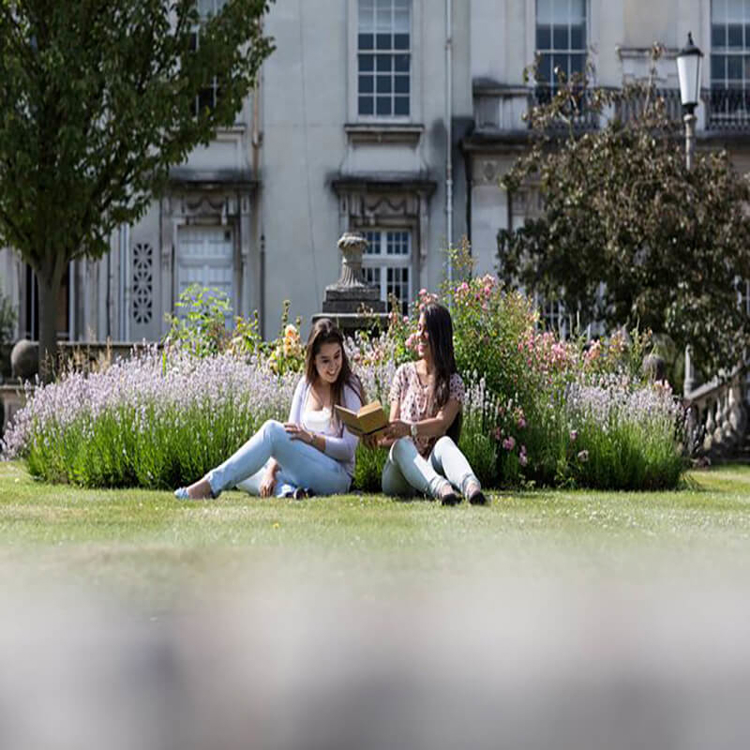
On-Campus Open Day
Saturday 12 July 2025
Grab the books and learn attractive professional skills, including work placements and career-focused assessments. This course teaches you to read critically, write persuasively, and be an impactful content creator.
Did you know?
Roehampton ranks among the top 5 universities in London for English (Guardian University Guide 2024), and within the top 10 in the UK for student satisfaction in English (Complete University Guide 2022).
Foundation Year
This course can also be studied with a foundation year (September entry only).
Ranked among the top 5 universities in London for English
(Guardian University Guide 2024)
![]()
Ranked in the top 15% in the world
Times Higher Education Young University Rankings 2024

English Literature ranked 1st in London for Learning Resources
National Student Survey 2024

Modules
This course offers all students the option of a one-year paid work placement, to boost your employability even further. If you choose this route, you will take the placement following year two of your course, and then return to complete your degree.
Why take a placement?
A placement year is the perfect opportunity to gain valuable work experience, to build on the career skills we will teach you on this degree. The connections you make on the placement will improve your career prospects further, and equip you with the skills you need to secure graduate-level employment.
How we support you
The University's Placement and Work Experience Team are experts at helping you to secure a placement. They will work closely with you from the start, helping you research potential employers, discover placement opportunities, create and pitch your CV, and will coach you to perform well in interviews. We aren't able to guarantee a placement, but our sector-leading advisors will give you the best possible chance of securing one.
Find out more about how we'll support you
We understand that your plans might change once you start your programme. If you decide not to do a placement, you will have the option of completing the three year version of your programme.
Whatever your choice, you will have access to many opportunities for work experience through our Placement and Work Experience Team, and access to face-to-face and 24/7 online careers support.
This course offers a foundation year, which takes place at the beginning of your studies. Studying a foundation year will give you academic and practical experience, and a strong introduction to your subject, ensuring you succeed on your undergraduate degree.
30 credits
You will develop your core academic and integrated English language skills of speaking, listening, reading and writing. You will become familiar with key academic skills and concepts, such as referencing methods and awareness of academic integrity and tone. You will apply these skills and knowledge to both broad topics and also your chosen subject pathway.
Teaching and learning
You will be required to actively engage in on-campus learning for up to 10 hours a week.
You will be taught through a full range of teaching and learning methods, which include lectures, seminars, workshops, discussion groups, group directed tasks and presentations. This will enable you to learn from your peers and tutors in both structured and information settings.
You will be encouraged to think creatively about your approach to learning and discussions with your peers. You will also have access to recordings, resources, links and signposting through Moodle to enrich your learning.
Assessment
You will be assessed through group and individual presentations, comparative and reflective essays, multiple choice exams, coursework and reports, oral exams, portfolios, case studies and blogs.
30 credits
You will develop your research, numeracy and information technology skills. You will investigate the difference between primary and secondary research, conduct your own research project and demonstrate your findings through data analysis. You will also develop your awareness of equality, diversion and inclusion in the UK, through a real-world issue; discrimination in the workplace.
Teaching and learning
You will be required to actively engage in on-campus learning for up to 10 hours a week.
You will be taught through a full range of teaching and learning methods, which include lectures, seminars, workshops, discussion groups, group directed tasks and presentations. This will enable you to learn from your peers and tutors in both structured and information settings.
You will be encouraged to think creatively about your approach to learning and discussions with your peers. You will also have access to recordings, resources, links and signposting through Moodle to enrich your learning.
Assessment
You will be assessed through group and individual presentations, comparative and reflective essays, multiple choice exams, coursework and reports, oral exams, portfolios, case studies and blogs.
30 credits
This module supports a broad exploration of crime and law and its integration within society across various sources, which includes diverse cultural, social, and political representations. By analysing a wide range of topics, you are encouraged to critically engage with how disability, gender and race are represented and viewed in relation to crime and law.
This course integrates sustainability by looking at the sustainability of social interactions and your results and consequences in relation to crime and law. Social responsibility, legal injustice across the globe and inequality are all featured. Social Responsibility is embedded through topics such as social identity, prejudice and exclusion. Social Cognitive Theory and Rational Choice Theory helps you understand challenges and question accountability for individuals and communities.
This course fosters global engagement by examining the inequalities experienced in other cultures, particularly in relation to race, gender and exclusion. Global challenges are addressed at every step equipping you with the skills to navigate a globalised world in a variety of ways. By analysing data and text concerning diverse cultures and contexts, you will develop an understanding of how individuals and cultures operate amongst injustices in a globalised world, preparing you to engage thoughtfully with diverse audiences.
Teaching and learning
Through lectures, workshops, group work, and structured academic writing, you will have the opportunity to practice the core academic skills needed for your future studies. Critical thinking will be developed through tasks such as text analysis, group discussions, and the ability to create well-structured academic assignments, including essays and presentations.
The teaching delivery for each module consists of one, one-three-hour lecture and one, two-hour workshop per week. You will get a diverse learning experience through case studies and active learning workshops and microteaches.
You will also have an additional 30 minutes of online support each week, consisting of activities to develop your presentation skills and to provide you with opportunities to explore wider policy implementation in diverse/comparative transnational examples.
Assessment
This module will be assessed using a video presentation and summative essay.
30% - video presentation, working in groups, you will produce a video on a topic taught on the curriculum and explain its impact on UK society, using a real-world example.
70% - summative essay, you will identify an issue, either historical or contemporary, that has had an impact on UK society and connect it to at least one of the key topics covered in the course.
30 credits
This module supports a broad exploration of social understanding across various sources, which includes diverse cultural, social, and political representations. By analysing a wide range of topics, you are encouraged to critically engage with how disability, gender and race are represented and viewed. This ensures that your projects and research can reflect a variation of perspectives, fostering a more inclusive and holistic learning environment.
This course integrates sustainability by looking at the sustainability of social interactions and your results and consequences. Social responsibility, globalisation and inequality are all featured. Social Responsibility is embedded through topics such as social identity, prejudice and exclusion. Social Cognitive Theory and Rational Choice Theory help you understand challenges and question accountability for individuals and communities.
This course fosters global engagement by examining the inequalities experienced in other cultures, particularly in relation to race, gender and class. Global challenges are addressed at every step, equipping you to navigate a globalised world in a variety of ways. By analysing data and text concerning diverse cultures and contexts, you develop an understanding of how individuals and cultures operate in a globalised world, preparing you to engage thoughtfully with diverse audiences.
Teaching and learning
The teaching delivery for each module consists of one, one-three-hour lecture and one, two-hour seminar per week. Lecturers will cover core indicative content, while seminars will consist of research workshops, as well as forming small groups and learning on relevant case studies.
You will also have an additional 30 minutes of online support each week, consisting of activities to develop your presentation skills and to provide you with opportunities to explore wider policy implementation in diverse/comparative transnational examples.
Assessment
This module will be assessed using an academic poster and a summative essay.
40% - academic poster, you will design a poster that provides key information and sociological analysis of your selected story or issue chosen from key weekly topics.
60% - summative essay, you will conduct a sociological analysis of a story or issue you have encountered in the media.
These modules are those we currently offer and may be subject to change.

Skilling Our Students for Success
Graduate with a broad, transferable range of creative, analytical, and professional skills.
This incorporates:
- Being a critical reader of texts and refining your professional reading, editing, and writing skills
- Becoming adept at changing your style for different contexts and audiences
- Developing skills in research and analysis, problem-solving, digital content creation, and independent study
- Getting hands-on project-creation experience individually and in teams
- Networking at our literature events, at the creative writing society, and wider school events
- Learning to combine creative and critical ways of writing
Equally important are the following, which are also central to our teaching and learning:
· Confidence: the ability to answer questions without fear
· Observation: seeing problems clearly
· Humility: knowing you don’t know everything
· Mindfulness: being aware of positive thought processes
· Curiosity: experimenting and exploring
· Resourcefulness: knowing where to come up with ideas
· Action: the ability to put ideas into action and to meet deadlines
With the BA English Literature, you will be ready for a wide range of jobs where you are able to think deeply and critically, and to communicate complex ideas persuasively and accessibly to different audiences – all important skills in a workplace that, in the current age of AI, will see an ever-increasing need for critical and creative thinkers.
Learning
Rise and shine with our flexible approach to learning.
Come to class on our beautiful campus to explore our inclusive curriculum and then keep exploring it from a location of our own choosing.
We offer a wide range of student-centred teaching styles. Keep reading below for a list of some of our most common teaching formats.
Common teaching formats
Remote:
- Pre-recorded lectures
- Forum tasks
- Topic / assessment surgeries
- Online tutorials
On-site:
- Lectures
- Seminars
- Workshops
- Skills sessions
- Assessment support sessions
- On-site tutorials
We believe in the power of your voice. Our teaching is built around student participation and a hands-on approach to the things we study. Lectures provide you with the information you need to get a firm grounding on each topic. Seminars and workshops are interactive classes where you discuss your ideas with your tutor and the rest of the class. What happens in each seminar will depend on what’s being studied. Activities will range from whole-class debates to small group close reading workshops. Each seminar is geared towards making your learning exciting and transformative. And that’s without mentioning the free field trips to cultural institutions!
I could not be a more steadfast advocate of study at Roehampton and all it has to offer; it has enriched my life in many ways. Here’s my top 4 reasons why I love it:
1. The flexible structure of the course has meant I have been able to continue working while also allocating sufficient time to my studies. For me, this has meant the manageable study requirements have been an enjoyment rather than a chore.
2. The range of interesting modules I have been able to choose from each term has allowed me to focus on subjects which I have a genuine interest in, from late nineteenth century American Literature to post-war, contemporary texts, to a focus on how written narratives are dealt with in the digital age. The varied subjects have allowed me to pursue areas of interest while also introducing me to subjects I was previously unaware of.
3. The stimulating lectures and seminars have shown me a depth to reading (and critiquing) novels in a way I never would have known before. My appreciation for literature has only been enhanced as a result. Not only does English Literature at Roehampton encourage you to read a wide range of texts, but the course also establishes these texts within the time period, the cultural and political landscape, and the historical context in which they were written (and set).
4. With its proximity to central London, the degree has incorporated various trips to literary sites of interest – the Charles Dickens’ Museum in Doughty Street, the famous Mrs. Dalloway walk from Westminster (from Virginia Woolf’s novel Mrs. Dalloway) and a fascinating trip to The Royal Academy of Arts (to name just a few). The inclusion of these trips has complemented the content of what I have learned on the course and truly brings to life the texts I have studied.
Sarah Payne
BA English Literature

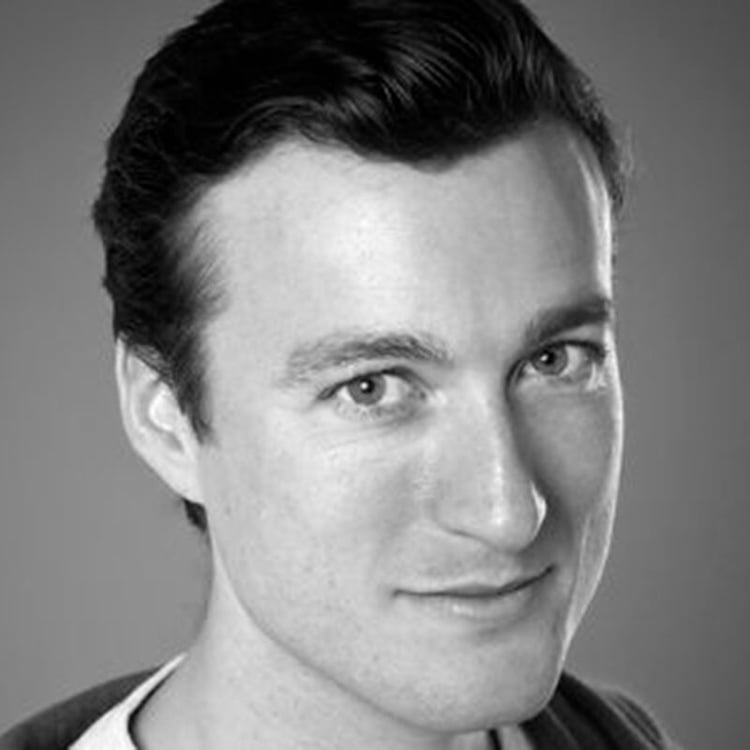
Dr Ian Kinane
Hi there, I’m Ian Kinane and I teach on the BA in English Literature, mainly in the areas of popular literature and culture, genre fiction, and children's literature. I am the general editor of the International Journal of James Bond Studies (which is a thing!), and my current research explores notions of bi-erasure in popular culture at large; I am currently putting together an edited collection provisionally titled Literature, Culture, and Bisexuality. Outside of work, I enjoy playing with my cat Sylvie, making theatre, working with young people, and reading (of course!). I look forward to working with you!
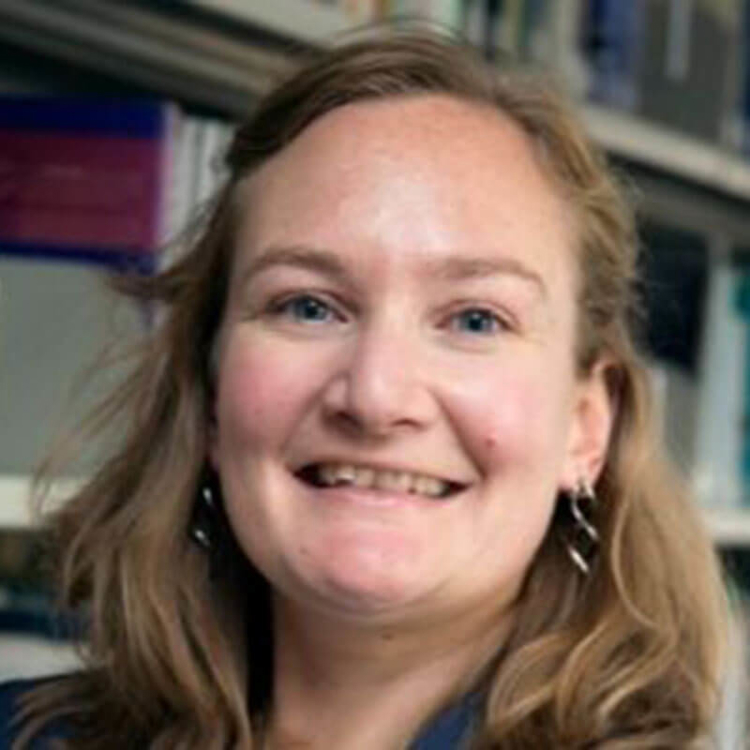
Dr Mary Shannon
Hi, I'm Mary L. Shannon, I specialise in 19th-century literature and culture so you'll find me teaching modules on Victorian Literature, Children's Literature, and Popular Culture, among other things. I currently run the 3rd year Final Project module. I am also Disabilities Co-ordinator for the School of Arts, Humanities, and Social Sciences: contact me if you'd like to talk about adjustments that you might need to help you thrive in your studies at Roehampton.
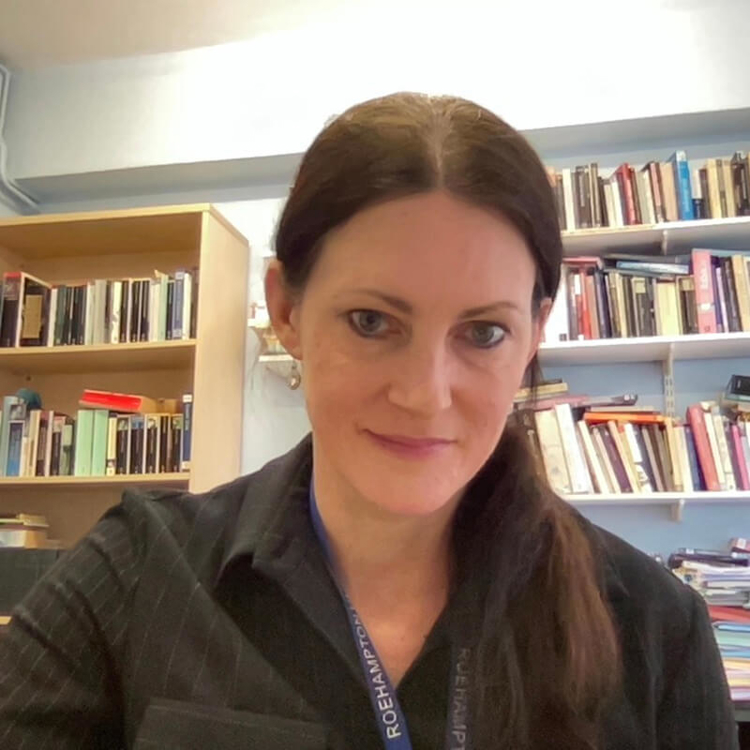
Prof. Jane Kingsley-Smith
Hi, I'm Jane Kingsley-Smith, and I'm a Professor in Shakespeare Studies at Roehampton. My teaching interest is mainly Shakespeare and early modern lyric poetry. I wrote a book called The Afterlife of Shakespeare's Sonnets, which explored how individual poems have been interpreted across the centuries - why George Eliot though they were exasperating, which one Dickens obsessively referred to - that kind of thing. In my spare time, I like reading contemporary novels and rewatching Succession (very Shakespearean).

Dr Alberto Fernandez-Carbajal
Hello! My name is Alberto and my preferred pronouns are they/them. I'm the programme convener for English Literature, which means I oversee the running of our course in liaison with students and staff. I will be your first point of contact if you need help navigating our programme. My research is placed at the intersection of colonial, postcolonial, queer, and diaspora studies.
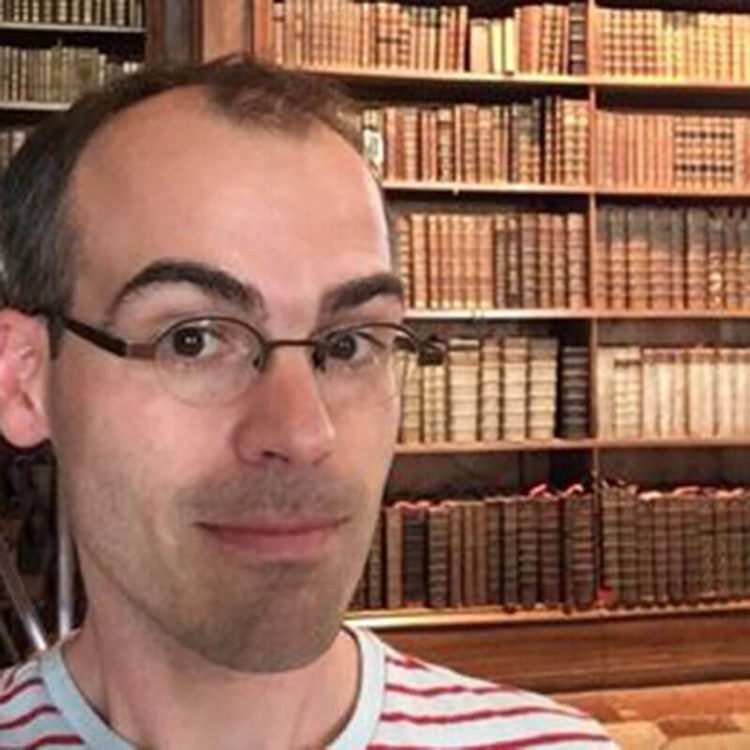
Dr Dustin Frazier Wood
Hi, I'm Dustin, a Senior Lecturer in the School of Humanities. You'll meet me in your first semester in Discovering Literature, a module that ranges from Homer's Odyssey to the drag, punk-rock musical Hedwig and the Angry Inch.

Tim Atkins
I'm Tim, Hello!
I teach creative writing on the MA Creative Writing and BA English Lit. I'm a published short story writer, poet, and playwright.

Dr Jerome Boyd Maunsell
Hi, I’m Jerome, and I'm a Lecturer in the Department of English and Creative Writing. I’m a biographer, writer and critic, and I’m especially fascinated by life writing in all its forms – including autobiography, biography, diaries, notebooks, letters, reportage and travel writing – and how we make sense of our lives through narrative.

Dr Alexander Bubb
Hi, I'm Alex and I teach on the BA English Literature and the MA Children's Literature. You'll often see me walking on campus with my dog Frida, who comes to most of my classes. I'm a nineteenth-century specialist and I teach Romantic & Victorian Bodies, and Questioning the Canon, among other modules
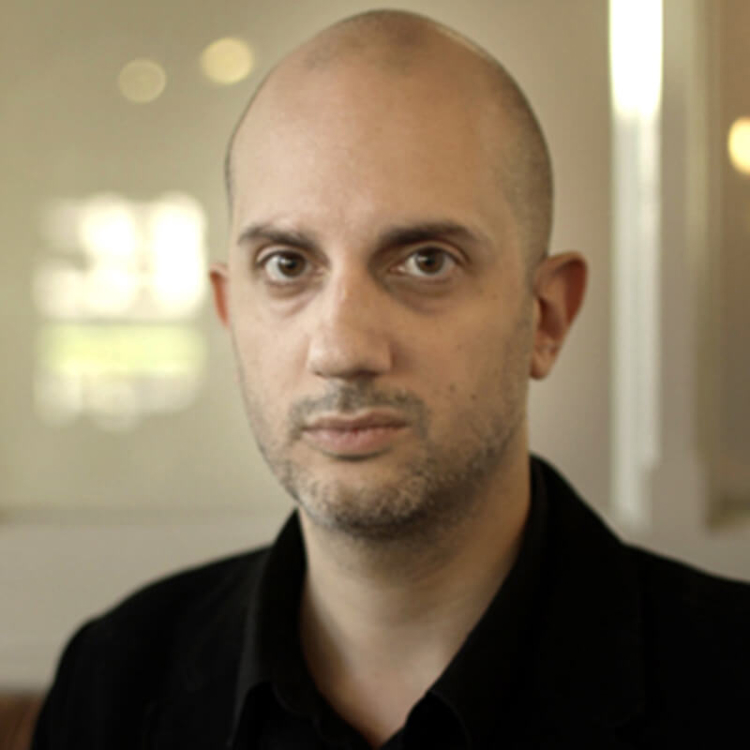
Anthony Paraskeva
I specialise in twentieth and twenty-first century literature, cinema and media, and I teach on modules including Visual Storytelling, Literature and Media, Tragedy, and Dystopias. My research interests in modernism, screenwriting, performance, and the relations between narrative forms in different media (books, film, TV, games), closely inform my approach to teaching. As well as writing books on Samuel Beckett, silent cinema, and multimedia editing techniques, I am also a filmmaker, and recently completed a feature-length horror film based the Greek myth of Medea.
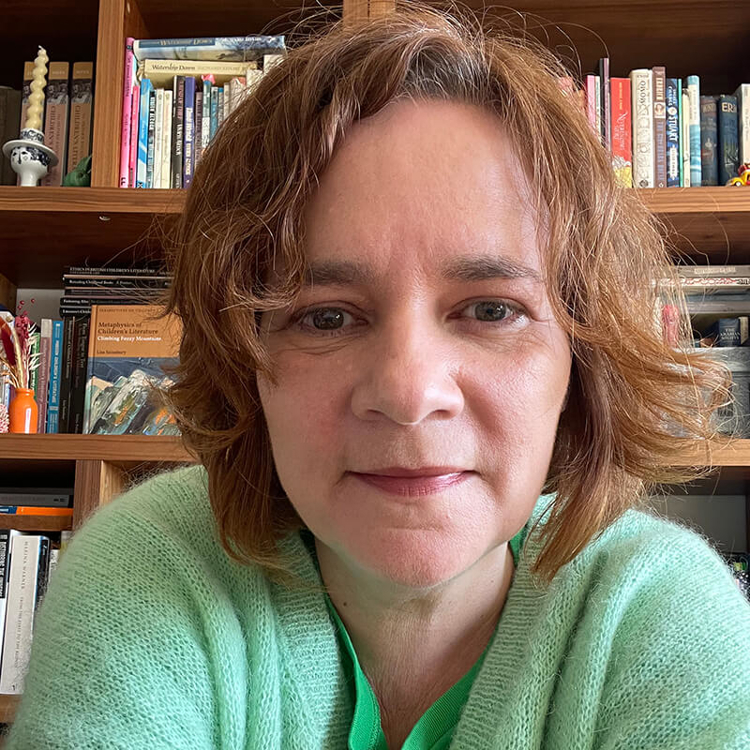
Dr. Lisa Sainsbury
Hello! I am Lisa Sainsbury, Associate Professor of Children’s Literature in the School of Arts Humanities and Social Sciences (AHSS). I teach on aspects of YA, childhood studies, and creative writing for young readers at all levels of study. I also am the Research Degrees Convener for the School of Arts, Humanities, and Social Sciences. I am Series Editor for Bloomsbury’s Perspectives on Children’s Literature and Chair of the National Community of Researchers in Children’s Literature (NCRCL). My ongoing research focusses on the philosophical remit of children’s literature, as explored in two of my books: Ethics and British Children’s Literature: Unexamined Life (Bloomsbury: 2013) and Metaphysics of Children’s Literature: Climbing Fuzzy Mountains (Bloomsbury: 2021).
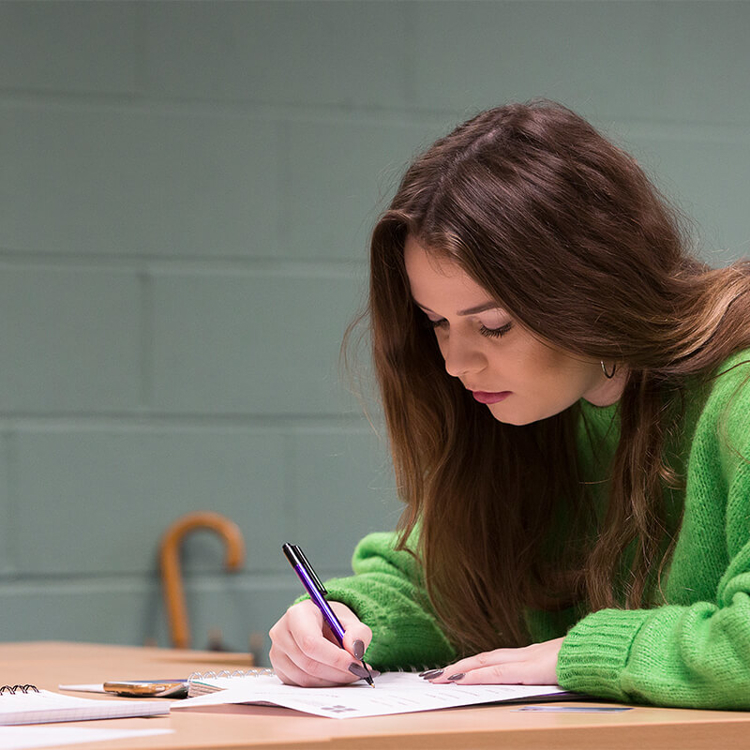
Assessment
The world ahead, from the safety of an inclusive learning environment
You’ll be assessed in a variety of ways: from close reading exercises, reviews, and blog posts, to essays, creative writing, interviews, or vlogs. These varied assignment formats will make you a versatile creative and critical thinker, helping you gain skills relevant to the workplace.
We pride ourselves in our sensitive approach to accessibility. We have been working hard at creating alternative forms of assessment that are suited to students with different learning needs. Our focus is on giving each student the chance to shine. There’s no one-size-fits-all when it comes to assessment, so you’ll be encouraged to discuss the format of your assessment with your module leaders and tutors.
Career
A ticket to more than teaching
Our BA English Literature will equip you to go on to do a PGCE. It will furnish you with the ideas and skills to teach a varied and exciting English curriculum.
However, that’s only one of your options after you graduate. Our graduates go on to do a wide range of jobs, since the world is in need of creative and persuasive wordsmiths. You can work in the charity sector, be a project manager, join the museum and heritage sector, be a content creator for a company, become a researcher. You name it.
Our graduates have gone on to work as:
- Journalists
- Copywriters
- Podcasters
- Librarians
- Editors
- Teachers
- Social media marketers
- Policy advocates
- Fundraising strategists
- Radio presenters
- Script editors
- Theatre directors

Wherever you want to go in the future, you’ll be preparing for the world of work from day one at Roehampton, with regular access to:
- Career development events
- Guest industry speakers
- Networking opportunities
- Personalised mentoring and careers support
You’ll graduate ready to grab every opportunity that comes your way.
Our careers support team is available to support you from the start of your studies until after you graduate. We will help you build your CV, prepare for interviews, and meet and learn from successful graduates working at the top of their careers.
You’ll also have opportunities to work with our partners across London and beyond, and to attend a Roehampton jobs fair where you can find out about graduate opportunities and meet employers.
Open days
Get a real taste of our campus, community and what it’s like to study at Roehampton
Applying
Full-time UK undergraduate students apply through UCAS.
Course subject to curriculum enhancement and revalidation.
Entry tariff
104–120 UCAS points (or equivalent)
Foundation Year: 64–80 UCAS points (or equivalent)
Looking to work out your UCAS points or find out about our entry requirements? Find out more.
When we consider applications to study with us, we form a complete view of your achievements to date, and future potential, and can offer flexibility in entry requirements. Find out more about our Contextual Offer scheme.
General entry requirements
September 2025 entry tuition fees
UK (home) tuition fees
Undergraduate degree: £9,535
Foundation Year: £5,760
We offer a wide range of scholarships and bursaries. See our financial support pages for UK students.
We also provide other ways to support the cost of living, including free buses and on-campus car parking, hardship support and some of the most affordable student accommodation and catering in London. Find out more about how we can support you.
International undergraduate students apply through our direct application system.
Course subject to curriculum enhancement and revalidation.
Entry tariff
Looking to work out your UCAS points or find out about our entry requirements? Find out more.
When we consider applications to study with us, we form a complete view of your achievements to date, and future potential, and can offer flexibility in entry requirements. Find out more about our Contextual Offer scheme.
General entry requirements
September 2025 entry tuition fees
EU and international tuition fees
Undergraduate degree: £16,950
Foundation Year: £16,950
International Foundation Pathway: £16,950
We offer a wide range of scholarships and bursaries. See our financial support pages for international students.
We also provide other ways to support the cost of living, including free buses and on-campus car parking, hardship support and some of the most affordable student accommodation and catering in London. Find out more about how we can support you.





